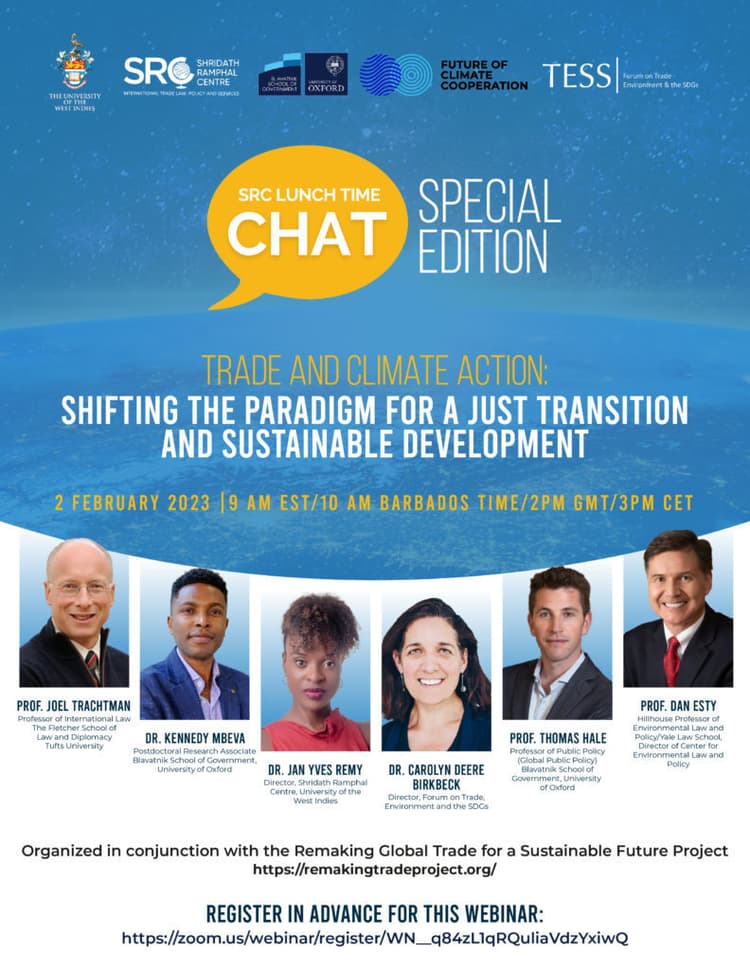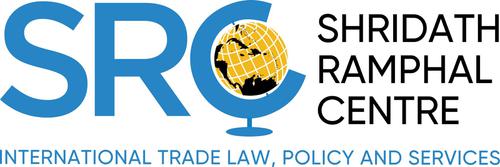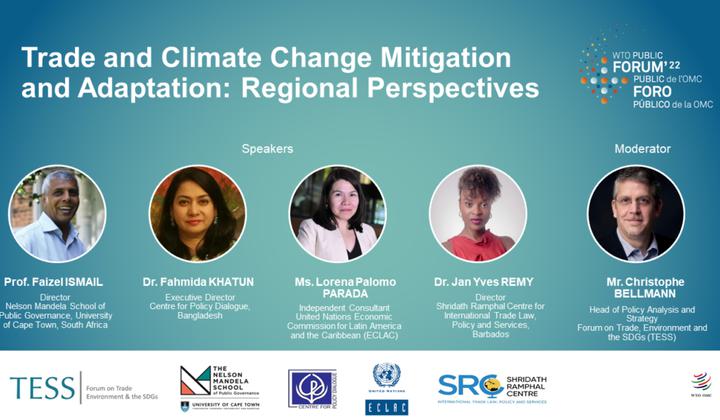As recognition of the urgency of climate action increases, debate is growing on the need to spur a paradigm shift to support sustainability in the international trading system. Moreover, critical gaps remain on how the links between trade, finance and climate action can be more ambitious and better support a just transition and climate-resilient development. To contribute to this discussion, TESS co-hosted this public webinar bringing together leading scholars and practitioners.
Under the auspices of the Aligning Climate and Economic Governance (ACEGOV), the UWI/SRC Lunch Time Chat seminar series, TESS, and the Remaking Global Trade for a Sustainable Future Project, this webinar brought together leading scholars and practitioners to discuss the following themes.
Agenda
Welcome & Introductory Remarks
- Thomas Hale, Professor of Global Public Policy, Blavatnik School of Government, University of Oxford
Reforming the World Trading System: Intellectual Framing of the Project and Its Importance for the Global South (Traffic Light System)
- Dan Esty, Professor of Global Public Policy, Blavatnik School of Government, University of Oxford
Regional Perspective: Africa
- Kennedy Mbeva, Postdoctoral Research Associate, Blavatnik School of Government, University of Oxford
Regional Perspective: Caribbean
- Jan Yves Remy, Director of the Shridath Ramphal Centre for International Trade Law, Policy and Services (SRC) of University of the West Indies, Cave Hill Campus, Barbados/Policy Director, Remaking Trade for Sustainability Project
Multilateral Perspectives and Opportunities for Linking Trade, Finance and Climate Action
- Carolyn Deere Birkbeck, Director, TESS
Revisiting the Bargain Between Developing and Developed Countries
- Joel Trachtman, Fletcher School of Law and Diplomacy, Tufts University; Founder/Lead on the Remaking Trade for Sustainability Project
Question & Answer Session
Conclusion & Closing Remarks
- Thomas Hale, Professor of Global Public Policy, Blavatnik School of Government, University of Oxford








